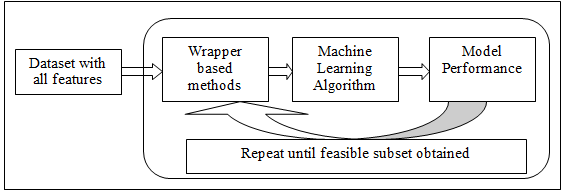Sentiment Analysis and Classification on Amazon Products using Improved Support Vector Machine for Multiclass Classification
Main Article Content
Abstract
There is a huge increase in number of peoples who have been accessing many social networking sites especially user post or reviews for a specific product, company, brand, individual, forums and movies etc. These reviews are helpful in judging customer perception on certain thing. The development of algorithms that could automate the categorization of distinct comments based on feedback from consumers became an analyst project, and this automated classification process is known as sentiment analysis. This research main goal is to analyze Amazon product reviews using an approach to Machine Learning (ML) built around TF-IDF and then employ the Support Vector Machine (SVM) algorithm to categorize the sentiment scores and sentences. SVM can handle binomial classification but the customer reviews is mostly classified into positive, negative and neutral and in some applications, it is fine grained into star ratings such 1-5 or sometimes 1-10. Also, in some applications features or attributes are high in number in which some are irrelevant. Hence, this work applies feature subset algorithm and improves the existing SVM to handle multiclass classification. The Sentiment analysis, Rapidminer tool is considered for classification and the results are visualized, assessed with suitable classification metrics.
Article Details
References
K. H. Manguri, R. N. Ramadhan, R.N. and P.R.M Amin, “Twitter sentiment analysis on worldwide COVID-19 outbreaks,” Kurdistan Journal of Applied Research, 2020, pp.54-65.
K. Ravi, and V. Ravi, “A survey on opinion mining and sentiment analysis: tasks, approaches and applications,” Knowledge-based systems, vol. 89, 2015, pp.14-46.
M. Al-Ayyoub, S. B. Essa, and I. Alsmadi, “Lexicon-based sentiment analysis of Arabic tweets,” International Journal of Social Network Mining, vol. 2, no. 2, pp.101-114, 2015.
W. Medhat, A. Hassan, and H. Korashy, “Sentiment analysis algorithms and applications: A survey,” Ain Shams engineering journal, vol. 5, 2014, pp.1093-1113.
B. M. Jadav, and V. B. Vaghela, “Sentiment analysis using support vector machine based on feature selection and semantic analysis,” International Journal of Computer Applications, vol. 146, 2016.
https://monkeylearn.com/sentiment-analysis/
E. Tyagi, and A. K. Sharma, “Sentiment analysis of product reviews using support vector machine learning algorithm,” Indian Journal of Science and Technology, vol. 10, 2017, pp.1-9.
F. C. Onwuegbuche, J. M. Wafula, and J. K. Mung’atu, “Support vector machine for sentiment analysis of Nigerian banks financial tweets,” Journal of Data Analysis and Information Processing, vol. 7, 2019, p.153.
Assef Raad Hmeed, Jamal A. Hammad, Ahmed J. Obaid. (2023). Enhanced Quality of Service (QoS) for MANET Routing Protocol Using a Distance Routing Effect Algorithm for Mobility (DREAM). International Journal of Intelligent Systems and Applications in Engineering, 11(4s), 409–417. Retrieved from https://ijisae.org/index.php/IJISAE/article/view/2687
E. M. Rachman, I. O. Suzanti, I.O. F. A. Mufarroha, “Text Mining and Support Vector Machine for Sentiment Analysis of Tourist Reviews in Bangkalan Regency,” In Journal of Physics: Conference Series, vol. 1477, no. 2, pp. 022-023, March 2020, IOP Publishing.
M. Cindo, D. P. Rini, and E. Ermatita, “Sentiment analysis on Twitter by using Maximum Entropy and Support Vector Machine method,” Sinergi, vol. 24, pp.87-94, 2020.
S. Rani, and J. Singh, “Sentiment analysis of Tweets using support vector machine,” Int. J. Comput. Sci. Mob. Appl, vol. 5, 2017, pp.83-91.
AGYEI , I. T. . (2021). Simulating HRM Technology Operations in Contemporary Retailing . International Journal of New Practices in Management and Engineering, 10(02), 10–14. https://doi.org/10.17762/ijnpme.v10i02.132
M. Ahmad, S. Aftab, and I. Ali, “Sentiment analysis of tweets using svm,” Int. J. Comput. Appl, vol. 177, 2017, pp.25-29.
H. Syahputra, “Sentiment analysis of community opinion on online store in Indonesia on twitter using support vector machine algorithm (SVM),” In Journal of Physics: Conference Series vol. 1819, no. 1, pp. 012-030, Mar 2021, IOP Publishing..
K. Gurumoorthy, and P. Suresh, “Supervised Machine Learning algorithm using Sentiment Analysis based on Customer Feedback for Smartphone Product,” International Journal of Emerging Trends in Engineering Research, vol. 8, no. 8, pp.1-9, Aug 2020.
Christopher Davies, Matthew Martinez, Catalina Fernández, Ana Flores, Anders Pedersen. Using Machine Learning for Early Detection of Learning Disabilities. Kuwait Journal of Machine Learning, 2(1). Retrieved from http://kuwaitjournals.com/index.php/kjml/article/view/172
S. Muthukumaran, and P. Suresh, “A Unified Framework of Sentimental Analysis for Online Product Reviews Using Enhanced Ant Colony Optimization Algorithm,” International Journal of Pure and Applied Mathematics (IJPAM), vol. 119, no. 14, pp 489-496, 2018.
https://www.kaggle.com/datasets/yasserh/amazon-product-reviews-dataset.

